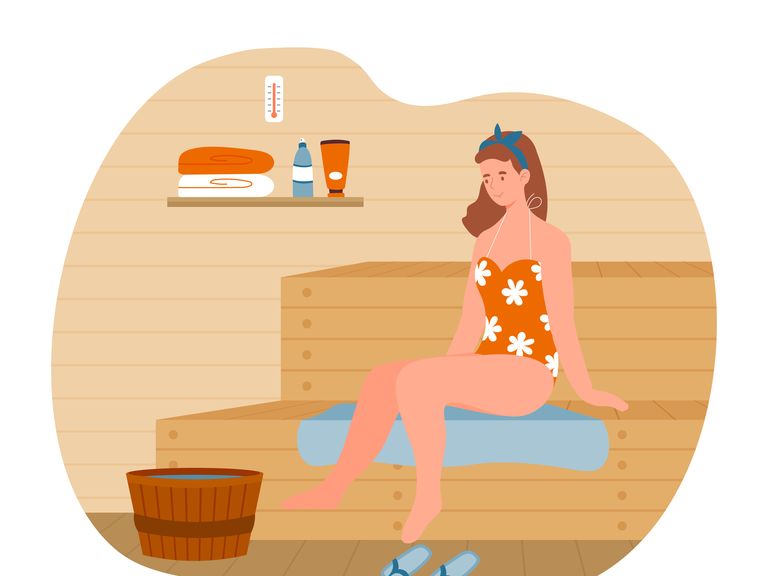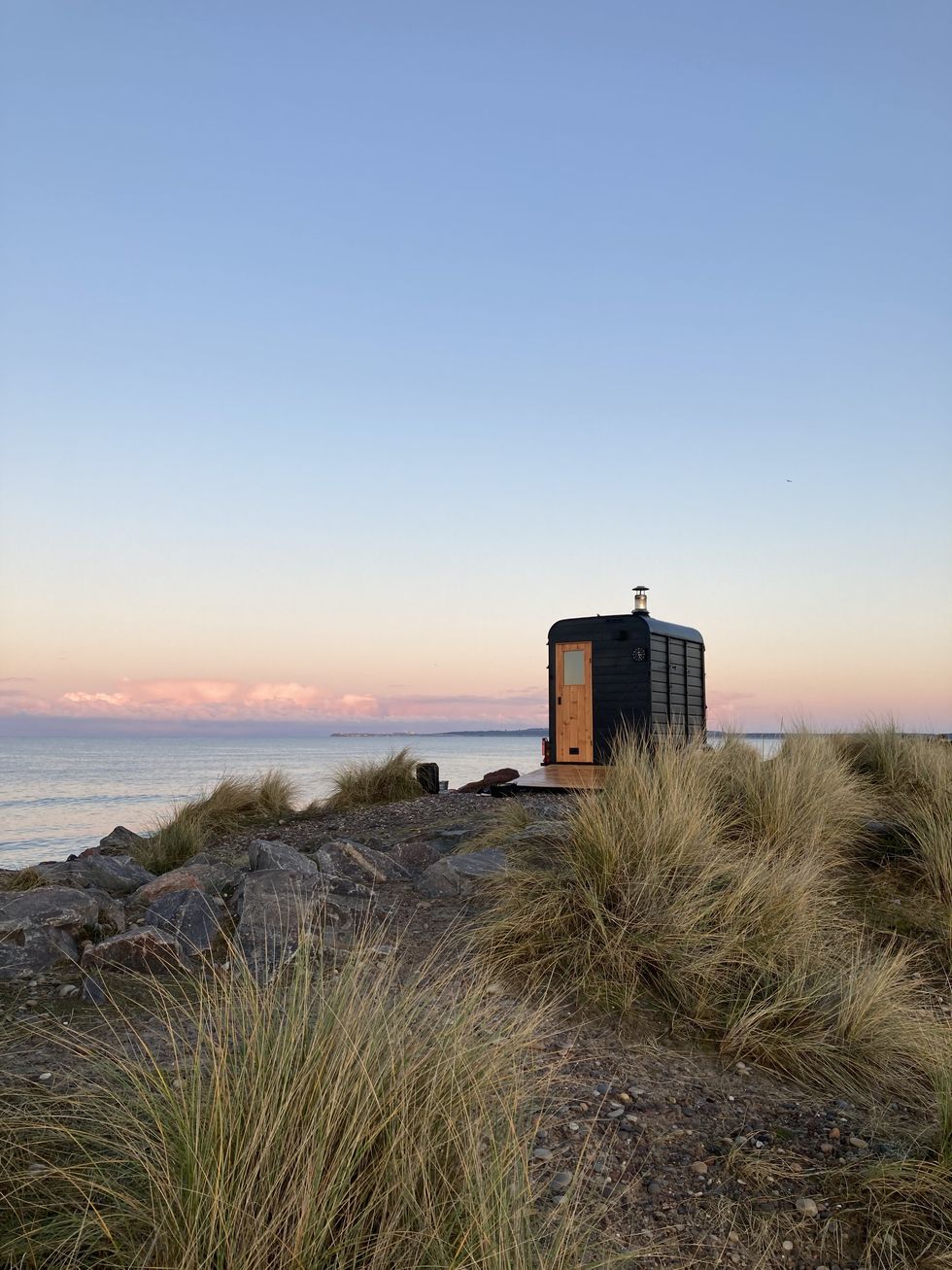The wind was howling, the temperature was five degrees and my friends had announced it was time to leave the delicious warmth of our wooden beach sauna and go for a dip. I’m a year-round sea swimmer and even I found the prospect daunting. It’s one thing stripping off on the pebbles in the winter when your entire body is already cold and the sea – while undeniably bracing – isn’t too far from the air temperature. But to exit the intense heat of a fully fired-up sauna, jog across the beach and then plunge into the sea really did feel like a wellness step too far.
I gritted my teeth, took off my felt “sauna hat” (worn to protect the head from heat), stepped outside into the winter air, pulled on my beach shoes and followed the group into the sea. A quick upper body splash to acclimatise, a squat to fully immerse up to my chin and – after 30 seconds of pure agony – the freeze begins to subside. After that first foray, the other dips were surprisingly easy. I would go as far to say, pleasant. And you know what was really wonderful? The afterglow. The creep of contentment and pleasure. And the fact that the sauna seemed to soothe my almost permanent rumination.
Now, several saunas in, I can attest that these benefits continue. And I’m not the only one. My friend Bee explains that the heat relieves symptoms of her slipped disc. Louise has noticed she feels happier, and that scar tissue left after an operation is softer and less sore. Sarah, who suffers from a frozen shoulder, says the pain has eased substantially. And these are quite apart from the emerging evidence-backed benefits that suggest saunas may offer some protection from dementia, help lung function and can provide a significant boost to mood.
“I’ve been going for about a year and I noticed a difference in the very first session,” says Sarah. “I think it’s the intensity of the heat that you just can’t achieve at home. I wouldn’t say the sauna fixed it, as frozen shoulders usually heal over time anyway, but I certainly had less pain and that in turn made me believe it would get better.”
But there’s one other surprising benefit you may not be aware of. It might be counterintuitive, but saunas are particularly effective at reducing blood pressure. In fact, a 2021 study of more than 100 adults showed that a 30-minute sauna led to significant declines in blood pressure. A further study that followed more than 1,600 males with normal blood pressure over two decades found that those who had four to seven saunas each week had a 47% decreased likelihood of developing hypertension. Impressive stuff.
So what might the optimal sauna prescription be? One 2023 review concluded that three to seven sauna sessions per week, each session lasting about 15 to 20 minutes, is associated with the most health benefits.
To date, there are upwards of 75 wild saunas dotted around Britain’s coastline and beside its lakes and lochs, from Watershed Sauna at Findhorn Beach in the north of Scotland to Beach Box Spa on Brighton Beach on the south coast of England.
Liz Watson is cofounder of Beach Box; when she set it up in 2018, it was the first of its kind. “I loved the beach and a sauna, and I wanted to bring the spa experience here on a budget,” she says. “We used a converted horse box and it fitted six people inside.”
Today, more than 600 people a week use the expanded Brighton sauna, and a whole range of options and rituals include salt scrubs and clay facemasks, with trained sauna masters offering guided saunas with leaf-whisking to improve circulation, and Aufguss rituals – these involve essential oils and waving towels to circulate heat in the sauna.
For Liz, chronic inflammation – where the body’s cells attack healthy tissue, causing diseases such as rheumatoid arthritis – is one chronic problem that regular saunas can help counter. “Studies show the positive effect of the contrast between heat and cooling the body down: it triggers the production of shock proteins, and they have a strong anti-inflammatory effect.”
In fact, saunas were the only effective way she found to treat her own chronic sciatica. “I had no idea that a sauna was such a healing place: now, I can see it works for so many medical conditions, even for people who have issues such as ADHD, or who are grieving.”
So why is it suddenly having such an impact in the UK? Liz thinks it’s partly to do with lockdown, when so many of us realised the power of being close to nature; and that also reminded us of the power of community, which saunas – most of which have sessions open to all comers, for a small fee – offer.
There’s also a spiritual element to taking a sauna – and in these days when fewer of us are connected to organised religion, perhaps we’re on the lookout for substitutes.
But perhaps the biggest lure is that saunas help you live in the moment. There are no mobile phones, no screens, no worrying about what happened yesterday or what might happen tomorrow: when you plunge into that freezing water and then run up the beach to feel the warm hug of heat, you’re existing only in the beautiful, glorious now.















